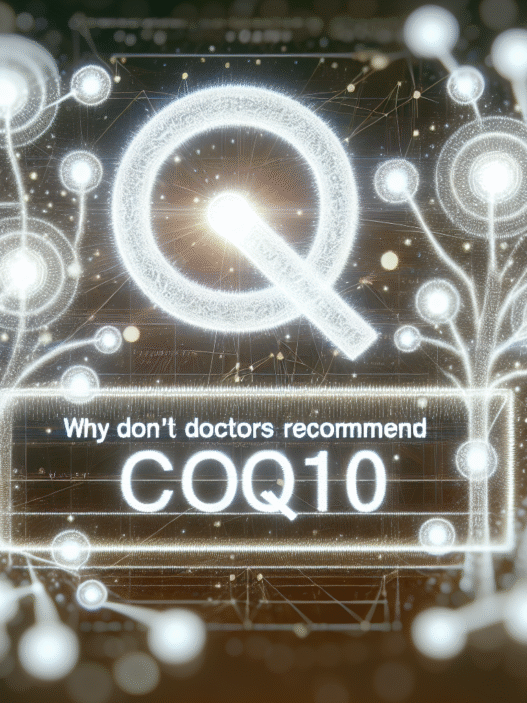Understanding CoQ10 Supplements
Introduction to CoQ10
Coenzyme Q10 (CoQ10) is like a little engine within cells, getting energy flowing and fighting off those sneaky free radicals that can cause damage. Think of it as the body’s unsung hero, especially hanging out in the heart, kidneys, liver, and pancreas. Unfortunately, as birthdays add up or with certain habits like smoking, CoQ10 levels can drop (Drugs.com).
Folks turn to CoQ10 supplements hoping they’ll give a hand with heart health, headaches from another dimension, and even high blood pressure. But remember, everyone’s health story is a bit different, so it’s wise to have a chat with a doc before getting started (Cleveland Clinic).
| Key Nutrient | Functions in the Body |
|---|---|
| CoQ10 | Energy production, antioxidant protection |
How CoQ10 Works
CoQ10 is all about keeping cells charged and ready. It nudges cells to produce adenosine triphosphate (ATP)—the big boss of cellular energy. Picture it giving your cells a pep talk, especially in those who might feel run down. But that’s not all. As an antioxidant, it’s in the battle against free radicals, defending cells like a tiny superhero with a shield.
Science has been poking around to see how CoQ10 stacks up for migraines, heart muscle struggles, and blood pressure battles. Though results are promising, they’re not guaranteed just yet (Drugs.com). It’s a good call to run things by healthcare experts, especially if there’s a pile of meds already on your plate.
If curiosity about symptoms of lacking CoQ10 has sparked, check out more info here.
Safety and Side Effects of CoQ10
CoQ10 supplements, now there’s a topic that stirs up curiosity, especially among those wondering, “Is there a catch to this CoQ10 thing?” We’ll cover the 101 on side effects, possible problems with meds, and what the doc says for pregnant and breastfeeding folks.
Common Side Effects
Most folks get along with CoQ10 just fine, with only a few tales of trouble. You might feel a bit uncomfy in the belly region—think stomach ache or maybe not wanting that second helping. But, just to be in the know, stay alert for:
| Side Effect | Details |
|---|---|
| Allergic Bumps | Might see rash, itchiness, or puffiness. |
| Tummy Troubles | Experiencing discomfort around meal times. |
| Urine Changes | Seeing dark pee? Could be a liver warning sign. |
| Unusual Tiredness | Feeling unusually wiped out for no good reason. |
Playing it safe means ringing up your doctor if these symptoms say hello. If you’re scratching your head about what it feels like to be low on CoQ10, take a gander at what are the symptoms of needing CoQ10?.
Potential Drug Interactions
CoQ10 might tango with certain meds, especially those thinning out blood or taming high blood pressure. Keep an eye out for these mix-and-match alerts:
| Type of Drug | What Happens |
|---|---|
| Blood Thinners | Could lessen the punch of meds like warfarin, upping clot risks (Drugs.com). |
| Blood Pressure Pills | Might meddle with how well they bring the numbers down. |
Having a chat with your doc is a must if you’re on these, especially if you’re curious about the dances CoQ10 plays with your prescriptions.
Safety During Pregnancy and Breastfeeding
Whether it’s baby-on-board days or nursing times, CoQ10 safety’s still in the research lab. Yeah, the jury’s kind of out. So, friends in these life stages should run any supplement decisions by their healthcare provider (Mayo Clinic). Staying cautious is the name of the game when nurturing a tiny human.
Stay savvy about these pointers to decide if CoQ10 is your best buddy or not. Craving more tidbits on CoQ10’s health perks? Check out what is CoQ10 recommended for? or see if it might be a teammate in weight loss adventures.
Health Perks and Uses of CoQ10
Coenzyme Q10 (CoQ10) is catching eyes for its possible health perks, mainly among adults interested in staying spry and controlling their weight. Though it gets a lot of buzz, how well it works can depend on the person.
Potential Benefits for Different Health Problems
CoQ10 is thought to be helpful for a handful of health problems, including:
- Migraines: It might lessen how often those pesky headaches hit.
- Heart Woes: CoQ10 is often talked up for helping with high blood pressure and heart hiccups, acting like a guard for your heart cells (Cleveland Clinic).
- Brain Disorders: Some digs into CoQ10 hint it might be useful for issues like Parkinson’s disease and eye troubles like macular degeneration.
- Statin-Slinked Muscle Aches: It might help ease muscle complaints from taking statins.
While there’s hope CoQ10 can boost certain health concerns, it’s a chat you should have with a health guru to see if it fits for you.
How Much Should You Take?
How much CoQ10 you need can swing depending on your health quirks. It’s usually seen as safe to take in doses up to 1,200 mg.
| What It Helps With | Suggested Daily Amount (mg) |
|---|---|
| Regular Supplement Use | 100 – 200 |
| Taking Care of Your Heart | 100 – 300 |
| Keeping Migraine-Free | 100 – 300 |
| Muscle Soreness from Statins | 200 – 400 |
Like any new pill or potion, it’s a wise move to chat with a doc before diving into CoQ10, especially if there are other health bits or meds in your life.
To dig more into how CoQ10 might team up with weight loss, check out does coq10 help with weight loss?. Need the scoop on signs pointing to CoQ10 necessity? Swing by what are the symptoms of needing coq10?.
Interactions with Medications
CoQ10 might throw a wrench in the works if you’re taking certain meds, so it’s worth thinking about how the two might play together. If you’re asking, “Does CoQ10 have any negative side effects?” here’s a thought—you should know how it might mess with your prescriptions.
Interaction with Blood Thinners
Here’s the lowdown: CoQ10 could clash with blood thinners like warfarin (Coumadin). Some folks say CoQ10 might make these drugs less kickin’, raising the odds of blood clots. While science can’t make up its mind on the whole situation, it’s better to play it safe. If you’re on blood thinners, have a chat with your healthcare pro before going CoQ10 crazy (WebMD, Drugs.com).
| Drug Type | Interaction Risk |
|---|---|
| Warfarin | More clots ’cause the blood thinners might not work so well |
Interaction with High Blood Pressure Medications
CoQ10 could put the squeeze on your blood pressure if you’re also on meds for keeping it in check. That combo might leave your numbers too low, which isn’t cool. If you’re taking blood pressure pills, keep a close eye on your stats and talk to your doc to see if this combo’s a good idea.
| Drug Type | Interaction Risk |
|---|---|
| Blood Pressure Meds | Pressure could drop too much |
Interaction with Cancer Medications
Despite the buzz about CoQ10’s health hype, its role in cancer treatment is still up in the air. Some early dots suggest it might ward off cancer, but no definite answers yet. If you’re on cancer meds, it’s wise to steer clear of CoQ10 unless given the go-ahead by your doc.
| Drug Type | Interaction Risk |
|---|---|
| Cancer Meds | Benefits? Not so sure, better talk with your doc |
Keep these interaction tidbits in your back pocket if you’re thinking about jumping on the CoQ10 bandwagon. For a scoop on when CoQ10 might be your pal, check out what is CoQ10 recommended for? or see if you match the symptoms that may indicate a need for CoQ10.
Importance of Consultation
Before popping that CoQ10 pill, having a chat with your doctor is like checking the weather before heading out with an umbrella—essential. This little step makes sure that what you’re taking actually suits your health condition and needs. Plus, who wants to be left in the rain, right?
Consulting Healthcare Provider
It’s always wise to huddle with a healthcare pro before grabbing any supplements. CoQ10 gets a lot of buzz for helping out with headaches, heart vibes, Parkinson’s, and even muscle woes from those big bad statins. But here’s the thing—science hasn’t given these claims the full thumbs-up yet. So, before jumping on the CoQ10 train, it’s best to hash out the benefits and risks with your doc (Drugs.com).
Now, spill the beans on your health history and all the meds you’re on. This info can arm your doc to make smart recommendations, especially since CoQ10 likes to mess with blood thinners like warfarin (WebMD).
Monitoring and Adjusting Dosage
Once you and your health expert decide CoQ10 is A-OK, keeping tabs on how it’s treating you is key. Those on blood thinners or other meds will need some extra attention. Your doctor might suggest you have blood tests or regular check-ups to see if CoQ10 is playing nice.
See anything odd like belly aches, weirdly dark pee, or feeling way more tired than usual? Drop your doc a line ASAP. It might mean tweaking how much you’re taking. Keeping the lines open with your healthcare provider ensures the dose is safe and hitting the sweet spot, making sure you’re squeezing out every benefit CoQ10 offers.
Want to dive into more about how CoQ10 could be the potion for you? Check out what CoQ10 is recommended for or get the scoop on possible hiccups by asking, does CoQ10 have any negative side effects?.
Regulations and Precautions
Grasping the rules and safety tips for CoQ10 supplements means you’re looking out for both health and effectiveness.
Quality Control of Supplements
Supplements like good ol’ Coenzyme Q10 aren’t monitored as strictly as meds. Their benefits for particular health issues might still be a bit of a mystery. Plus, the quality and power levels can shift a lot between products, potentially putting you at risk (Cleveland Clinic). Picking top-notch supplements from known, trusty brands can cut down these risks.
| Aspect | Description |
|---|---|
| Regulation | Not like meds |
| Purity and Strength | Swings from brand to brand |
| Manufacturer Choice | Stick with trustworthy names |
Reporting Side Effects
Folks taking Coenzyme Q10 need to know about possible side effects. Sharing any strange reactions with a doctor is a good move. Watch out for stuff like:
- Allergic reactions: rash, itching, or swelling
- Stomach pain
- Lost interest in food
- Dark pee
- Feeling way more tired than usual
The usual side kicks – like diarrhea, feeling nauseous, stomach annoyances, and throwing up – often don’t need a doctor’s visit.
| Side Effect | Seriousness |
|---|---|
| Allergic reactions | Serious |
| Stomach pain | Serious |
| Loss of appetite | Serious |
| Dark urine | Serious |
| Unusual tiredness | Serious |
| Diarrhea | Mild |
| Nausea | Mild |
| Stomach upset | Mild |
| Vomiting | Mild |
Proper Storage and Disposal
The way you stash and toss out Coenzyme Q10 matters for keeping it effective and safe. Keep it out of kids’ reach and store it at room temperature like the instructions say. Got extras that’ve expired? Toss them out to avoid future mishaps or misuse (Cleveland Clinic).
Sticking to these tips will help you get the most out of CoQ10, dialing up the perks while keeping any negatives at bay.





















